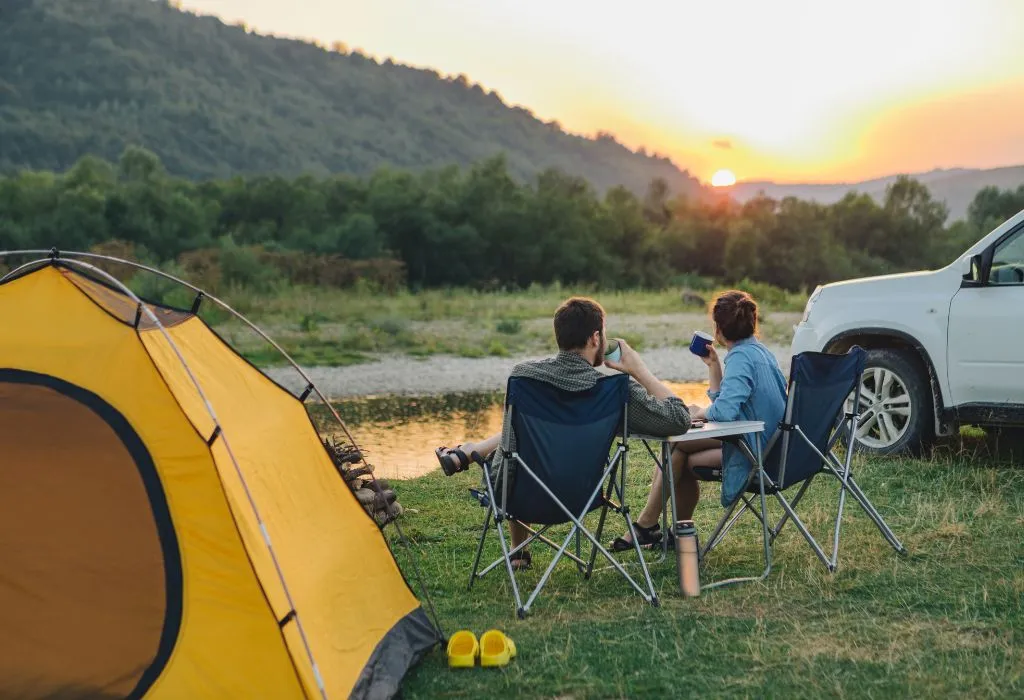Uncategorized
How to Stay Safe and Comfortable During Your Next Camping Trip
Camping is an incredible way to disconnect from the hustle and bustle of everyday life, embrace nature, and recharge. Whether you’re a seasoned adventurer or a first-time camper, ensuring your safety and comfort in the wilderness should always be a top priority. With the right preparations, equipment, and precautions, you can enjoy your camping experience to the fullest, all while minimizing risks.
Here’s a guide on how to stay safe and comfortable during your next camping trip so that you can focus on enjoying the outdoors while avoiding common mishaps.
1. Plan and Prepare: The Key to a Safe Camping Trip
Before heading out into the wild, it’s crucial to plan ahead. A little preparation goes a long way in ensuring that you stay safe and comfortable during your trip.
Research Your Campsite and Area
- Weather Forecast: Check the weather forecast for the days you’ll be camping. This will help you pack appropriately and prepare for any storms or changes in temperature.
- Campsite Rules: Review the rules of the campsite or wilderness area. Know whether campfires are allowed, where to pitch your tent, and if there are any wildlife safety tips you should follow.
- Trail Difficulty: If you’re hiking, understand the difficulty of the trails and make sure they align with your fitness level.
Share Your Plan
- Tell Someone: Always inform a friend or family member about where you’re going, how long you’ll be gone, and when you plan to return. In case of an emergency, they’ll know where to start looking.

2. Choose the Right Gear: Comfort and Safety First
The right gear can make all the difference between a pleasant camping experience and a stressful one. When choosing your camping gear, prioritize comfort and safety.
Shelter: Your Home in the Wilderness
- Tent: Select a high-quality tent that’s appropriate for the weather conditions. Make sure it’s well-ventilated to prevent condensation and features a sturdy rainfly to keep you dry during storms.
- Sleeping Bag: Choose a sleeping bag rated for the expected temperatures of your trip. Opt for synthetic insulation if you expect damp conditions, or down insulation for warmth and lightness in dry conditions.
- Sleeping Pad: A comfortable sleeping pad provides insulation from the cold ground and cushions your body for a restful night’s sleep. Look for lightweight and compact options if you’re backpacking.
Clothing: Layering is Key
The weather can change quickly, so it’s important to layer your clothing properly for warmth, comfort, and protection.
- Base Layer: Opt for moisture-wicking fabrics like merino wool or synthetic materials. These keep sweat off your skin and help regulate your body temperature.
- Mid Layer: A fleece jacket or down vest provides warmth without being too bulky. These layers help retain heat.
- Outer Layer: Choose a waterproof, breathable jacket to protect against rain and wind.
- Extra Clothing: Always pack an extra set of clothes, including socks and underwear, in case your clothes get wet.
Footwear: Comfortable and Supportive
- Hiking Boots or Shoes: For day hikes, sturdy hiking boots with good ankle support and traction are key. If you’re setting up camp, comfortable camp shoes or sandals will be perfect.
- Socks: Wear moisture-wicking socks to prevent blisters. Wool or synthetic fibers are best for backpacking trips.
Cooking Equipment: Stay Nourished and Hydrated
- Stove and Fuel: A lightweight stove is essential for cooking meals, especially if you’re backpacking. Look for stoves that are easy to set up and operate, such as canister stoves or alcohol stoves.
- Cookware: Choose compact, lightweight cookware like titanium pots or pans that are easy to pack and clean.
- Water Filtration: Carry a reliable water filter or purification tablets to ensure you have access to clean drinking water. Always purify water from streams, rivers, or lakes before drinking.
3. Stay Safe: Be Aware of Your Surroundings
While camping, your safety is paramount. Taking precautions will help prevent accidents and ensure a stress-free experience.
Wildlife Safety
- Keep Food Secured: Store food in sealed containers or hang it from a tree to keep it away from animals. In bear country, use bear-proof containers and follow local guidelines for food storage.
- Be Aware of Animals: Learn about the wildlife in the area and how to stay safe. For example, avoid feeding animals and be cautious when encountering larger wildlife like bears or mountain lions.
Fire Safety
- Campfires: Always follow fire safety rules. Never leave a fire unattended, and make sure it’s completely extinguished before you go to sleep or leave camp. Use established fire rings if possible.
- Fire Extinguisher: It’s wise to carry a small fire extinguisher or water bottle to put out fires in an emergency.
Navigation
- Maps and Compass: Always carry a map and compass (or a GPS device) and know how to use them. Stay on marked trails and be aware of landmarks.
- Know Your Limits: Don’t overestimate your ability to hike long distances or take on challenging trails. Turn back before it gets dark if you’re unsure of the trail.
First Aid Kit
- Essential Supplies: Pack a well-stocked first aid kit that includes bandages, antiseptic wipes, blister treatment, pain relievers, and any necessary prescription medications.
- Know Basic First Aid: Familiarize yourself with basic first aid procedures, such as how to treat cuts, sprains, or burns. It’s also helpful to learn CPR before heading out on your trip.
4. Stay Comfortable: Enjoy the Outdoors to the Fullest
While safety is the top priority, comfort also plays a significant role in making your camping trip enjoyable. Simple steps can make your stay in the wilderness much more pleasant.
Sleep Comfortably
- Choose a Comfortable Sleeping Setup: A good sleeping bag and pad are essential for comfort. Consider a pillow or a stuff sack filled with clothes for neck support.
- Sleeping in a Tent: Make sure your tent is set up on flat, level ground away from water sources to avoid waking up to a wet tent or disturbed sleep.
Food and Hydration
- Eat Well: Plan your meals ahead of time and bring lightweight, non-perishable foods such as freeze-dried meals, trail mix, or dehydrated soups. Bring snacks for energy during hikes.
- Hydrate Regularly: Dehydration can sneak up on you, especially when you’re active in the heat. Always carry water with you and take regular sips, even when you’re not thirsty.
Relax and Unwind
- Camp Comforts: Pack lightweight items to enhance comfort, such as a camp chair, a hammock, or a small pillow. After a long day of hiking, it’s nice to have a comfortable spot to relax.
- Enjoy Nature: Don’t forget to take in the beauty around you. Spend time sitting by the campfire, gazing at the stars, or simply listening to the sounds of nature.
5. Be Prepared for the Unexpected: Always Have a Backup Plan
No matter how much you prepare, things can still go wrong. That’s why it’s always a good idea to have a backup plan and some extra gear to handle unexpected situations.
Emergency Supplies
- Extra Food and Water: Bring more food and water than you think you’ll need, just in case your trip takes longer than expected.
- Multitool: A good multitool can be a lifesaver when you need to make quick repairs to gear or tents.
- Whistle: In case you get lost, a whistle can help attract attention. It’s lightweight and doesn’t take up much space.
Know When to Call It Quits
- Listen to Your Body: If you start feeling fatigued, dehydrated, or unwell, don’t push yourself too hard. It’s always better to cut your trip short than risk injury or illness.
- Change of Plans: If the weather turns bad or you encounter an unsafe situation, don’t hesitate to change your plans. Your safety should always be the number one priority.
Conclusion
Camping is an amazing way to connect with nature, unwind, and enjoy the great outdoors. By taking the right precautions and packing smartly, you can ensure that your next camping trip is both safe and comfortable. Preparation is key to handling any challenges that come your way, from unexpected weather changes to potential injuries.
With the right gear, knowledge, and attitude, you can enjoy a relaxing, fun, and memorable camping experience. So, get out there, explore the wilderness, and create memories that will last a lifetime!

